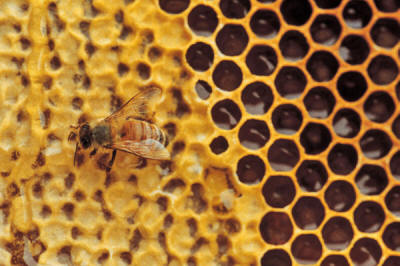|
from
NaturalNews Website
For more than 60 years now, many conventional bee farmers have been dousing their hives with antibiotic drugs to prevent their bees from dying of foulbrood, a bacterial disease that has the potential to wipe out entire bee colonies if left unaddressed.
But the unabated use of these
drugs has had the unintended, long-term consequence of generating
antibiotic-resistant genes within entire species of bees, and
particularly among bees in the U.S. that have endured the longest
and most substantial chemical exposures.
A recent study published in the online, open-access journal of the American Society for Microbiology, widespread use of oxytetracycline, an antibiotic drug that disrupts the bacterial balance of bees' guts, has resulted in gradual genetic changes taking place throughout the generational cycles of bees' lives.
Utilizing sensitive molecular techniques, Nancy Moran and her colleagues conducted a comparative analysis of U.S. bees, as well as bees obtained from,
...and elsewhere.
Based on the results of a
comprehensive gene analysis, the team determined that U.S. bees
had the highest number, and most diverse set, of genes with
resistance to tetracycline, which is similar in structure to
oxytetracycline.
But in the U.S., where oxytetracycline continues to be permitted for use in hives, bees were found to have as many as eight antibiotic-resistance genes, which has made them more prone than ever to foulbrood and other deadly pathogens.
|

